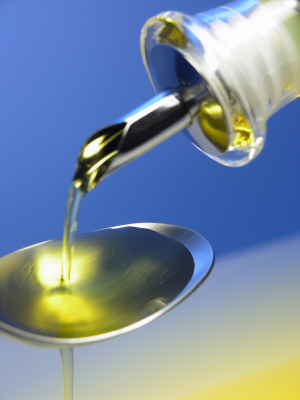The Best Oils to Use for Cooking
|
Reading time: 3 minutes
|

Cooking oils are as important consideration as what food you place into your body. In general, you should look for oils that are high in Omega-3 and Monounsaturated Fats. The former are essential fatty acids, meaning that they cannot be synthesized by the human body even though are vital for maintaining good metabolism. Monounsaturated fats are double bonded fatty acids with many positive health effects. For example, high levels of monounsaturated fatty acids are positively associated with breast cancer risk.
Refined versus Unrefined Cooking Oils
Refined oils have undergone processes to change their structure, whereas unrefined oils haven’t undergone any processes. It is usually best to choose an unrefined oil, as they are in their natural state.
High Oleic Oil versus Linoleic
It is best to choose high oleic options over linoleic options. High-oleic oil contains a lower percentage of negative fatty acids, such as polyunsaturated or saturated fatty acids. Oleic acid is a monounsaturated fatty acid, meaning it is more stabilized than polyunsaturated acids. Additionally, linoleic typically means that the oil has been refined, losing the benefits of its healthy fatty acids.
The Best Oils for Cooking
The healthiest oils to cook with will be high in Omega-3 and Monounsaturated Fats.
The best hot temperature oil (ideal for stir-fry) is Tea Seed Oil (not to be confused with Tea Tree Oil). Macadamia oil, which contains some unique antioxidants, is also ideal when cooking at high temperatures.
Extra Virgin Olive Oil: You should look for Olive Oil in tin cans, not glass bottles, as exposure to light can have adverse effects. You should also not fall prey to the phony olive oil. Olive oil is versatile in that it can be used for either baking or stir fry.
There are also many healthy, temperature-sensitive oils that you should consider adding to your salads (aka oils ideal for low temperature oils), such as flax or safflower oil.
Oils to use Sparingly
Butter (if it is grass-fed) contains conjugated linoleic acid, which is an essential fatty acid and is good for you. Yet, butter should still be used sparingly. Grain-fed butter is high in both “bad” saturated fats and Omega-6.
Another salad oil to use occasionally is unrefined pumpkin seed. It contains 50%-65% valuable, easily digestible fat and around 30% protein.
Bad Oils for Cooking
Canola oil: unless it is organic and expeller pressed, this oil is probably high in pesticides and has been genetically modified. Additionally, the Omega-3s it contains, which are usually “good,” were probably exposed to high heat during processing, and thus have lost their good attributes.
Other oils to avoid at all costs include margarine, coconut and shortening oils. The three aforementioned contain man-made trans-fats.
Cottonseed oil has the worst omega-3 to omega-6 ratio of any oil and it is usually refined, deodorized and bleached.
Further Information
As you have maybe deduced by this point, the operative variable here for cooking oils is whether the oil itself is going to be cooked. One must be vigilant to know ahead of time the intended application of the oil in question. Depending on whether or not it will be heated, or to what degree, will indicate to you which oil is best for you.
Information provided on this website is for general purposes only. It is not intended to take the place of advice from your practitioner







